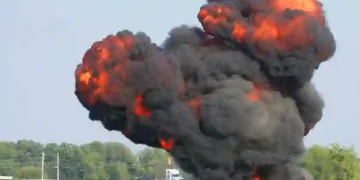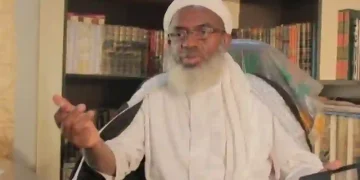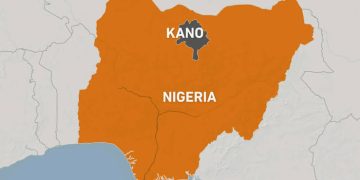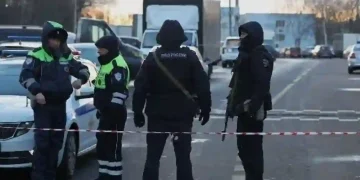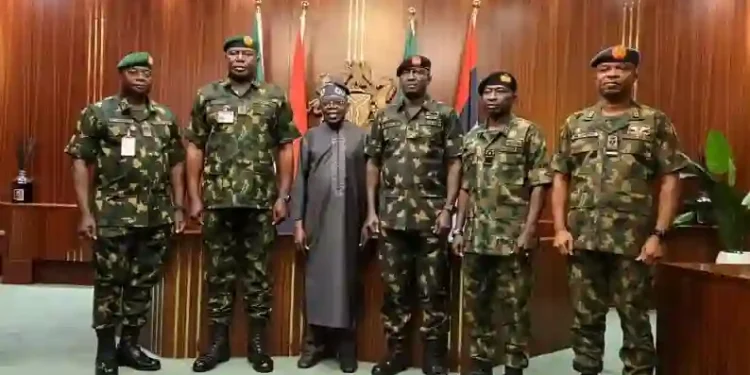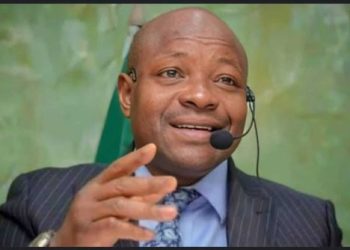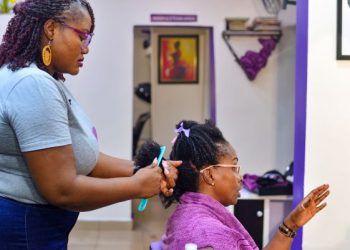In the stillness of early October, a familiar anxiety returned to Nigeria’s political consciousness — whispers of a coup, that forbidden word that once shaped the nation’s destiny through gun barrels and midnight radio announcements. The official statements tried to sound calm, the denials tried to sound rehearsed, but the tremor underneath was unmistakable: something was wrong within the military house.
At least forty officers have been detained Some are from the Army, some from the Navy, others from the Air Force. The Defence Headquarters calls it an “internal disciplinary process,” yet leaks and investigations describe something darker — a web of alleged plotting, encrypted communications, and a supposed plan to take down the country’s highest office. Whether or not a coup was truly in motion, the mere suspicion tells a heavier truth: Nigeria’s democracy is living on a delicate truce between its rulers and its protectors.
There is a strange choreography that follows every coup rumor in Nigeria. The military denies. The Presidency reassures. The public listens with one ear and remembers history with the other. The scene after this alleged plot unfolded the same way — but more subtly, as though everyone was trying not to provoke ghosts.
Reports first emerged that several senior officers had been quietly arrested. Then came news of raids on the homes of a former governor, Timipre Sylva. Days later, the government canceled the Independence Day parade — officially, for “security and logistic reasons.” It didn’t take long for people to connect the dots. When soldiers begin disappearing into intelligence custody around October 1, Nigerians, shaped by memory, know the silence means more than safety.
President Bola Tinubu’s government dismissed the notion of a coup attempt. The Defence Headquarters insisted that the detentions were for “disciplinary” reasons, not subversion. But that explanation has only deepened the unease. When forty two men in uniform are held in secret, when their names begin leaking from unofficial sources, and when whispers of “kill lists” surface, the denial loses its credibility faster than any rumor can.
A Legacy the Barracks Never Buried
Nigeria’s democracy has lasted for twenty six consecutive years, the longest stretch since independence. Yet beneath that fragile continuity lies an unhealed wound. The military, after decades of rule, never truly left the country’s bloodstream. It simply retreated behind new ranks of power.
Many of today’s officers were raised in an era when coups were still discussed as “corrections.” They grew up under the shadows of Babangida, Abacha, and the mirage of discipline those eras sold. To them, the idea that civilian leaders could misgovern without consequence feels alien to the institutional pride of the old barracks. Even if they never intend a coup, the emotional residue of military salvation remains.
That legacy complicates Tinubu’s presidency in a unique way. He was a pro democracy figure during the Abacha years, a man once hunted by the same soldiers who now protect him. His rise from exile to power symbolizes victory over military rule, yet his government’s struggle with internal loyalty shows that civilian supremacy in Nigeria is still not absolute. The soldiers obey, but they do not always trust.
The Unsaid Story — Soldiers Without a Country
Behind the politics lies a quieter tragedy. The Nigerian military is stretched thin, weary, and emotionally disoriented. From the forests of Zamfara to the mangroves of the Niger Delta, soldiers are fighting multiple wars at once — against insurgents, bandits, oil thieves, and despair. Some haven’t been paid allowances for months. Others have watched comrades die without official acknowledgment.
In that exhaustion, resentment grows. It isn’t always political; sometimes it’s personal. When promotions feel ethnic, when postings feel political, when officers believe competence no longer determines command, rebellion begins not as conspiracy but as quiet disillusionment.
This is why even if the alleged coup turns out exaggerated, its emotional truth remains valid. The arrests expose the tension between the soldiers who bear the cost of the country’s insecurity and the leaders who benefit from their silence. In many ways, the real coup is not against Tinubu. It is against morale.
Tinubu’s reaction to the saga was notably restrained. No televised address. No alarmist declaration. Instead, a quiet reshuffle of the service chiefs, a contained show of authority. It was the move of a man who understands that power in Nigeria must sometimes whisper to survive.
His presidency, however, stands at a crossroads. If the plot was real, it means disloyalty has penetrated the very structure that guarantees his safety. If it was not, it risks becoming a convenient narrative to justify further consolidation of control, a tightening of military loyalty through fear.
Either way, Tinubu faces a paradox: to maintain civilian rule, he must rely on the same institution whose loyalty has historically been conditional. His challenge now is not only to command obedience but to restore belief — belief that democracy can protect those who protect it.
Coup Rumors as Political Mirrors
Coup rumors in Nigeria often reveal less about generals and more about civilians. Every whisper reflects a society that feels cornered by its own contradictions. Inflation bites harder than promises, insecurity spreads faster than reform, and the distance between leaders and citizens widens each week.
So when Nigerians hear about soldiers planning mutiny, part of them does not fear it — they interpret it as the symptom of a deeper fatigue. The yearning is not for khaki power but for accountability that democracy has failed to deliver. That is what makes this alleged coup dangerous: not the possibility of tanks rolling through Abuja, but the possibility of citizens silently asking if those tanks would do better.
That question, unspoken but alive, is the real alarm bell for any government that claims democratic legitimacy.
Between Loyalty and Fear
The Military’s loyalty to the state is not measured in parades or anthems. It is measured in fairness. When officers perceive ethnic imbalance in command appointments or political favoritism in promotions, loyalty erodes. The reports that most of the detained officers come from Northern regions may ignite old suspicions of marginalization, especially at a time when the North already feels alienated from Tinubu’s power structure.
The government must tread carefully. A democracy cannot survive by silencing the discontent of its protectors. Yet, neither can it tolerate conspiracies in uniform. The answer lies not in mass arrests but in rebuilding institutional dignity, ensuring the Nigerian soldier feels respected, not merely controlled.
Transparency is crucial. If a coup was indeed foiled, the government owes the nation clarity. If it was not, the detained officers deserve justice. In either case, secrecy only feeds the myth that something bigger is being hidden.
The Invisible Battle for the Republic
Nigeria’s greatest threat has never been the bullet; it has always been the breach of trust. Each time the people lose faith in the soldiers, and the soldiers lose faith in the politicians, the constitution becomes little more than paper armor. The current allegations show that both sides of that trust are wearing thin.
Tinubu’s administration must recognize this as a national emergency — not of security but of spirit. The cure is not propaganda; it is presence. A president who visits barracks unannounced, listens to the grievances of those detained, and reforms promotion systems can do more for stability than any televised reassurance.
Because in truth, Nigeria’s soldiers are not plotting against democracy — they are pleading for a nation that values their sacrifice. And if that plea is ignored, suspicion will keep breeding until the next rumor arrives.
The Fragile Future of Civilian Power
As Nigeria stands today, there are no tanks on the streets, no midnight radio broadcasts, no gunfire echoing through Dodan Barracks. Yet the anxiety remains, hovering like an echo from the 1980s.
The country has grown too weary for another uniformed interruption, but not yet mature enough to feel immune from it. Democracy survives in Nigeria not because it is strong, but because its alternatives have proven worse. That is the quiet contract between ruler and ruled, soldier and citizen.
If this alleged coup was indeed real, it must serve as a wake-up call — not just to punish plotters, but to heal the fracture between those who serve and those who govern. And if it was false, it should remind the government that fear cannot replace trust, and silence cannot stand in for unity.
For now, the uniforms remain folded under command. But the question persists: how long can Nigeria rely on discipline alone when faith in leadership is fading from the barracks to the ballot?



